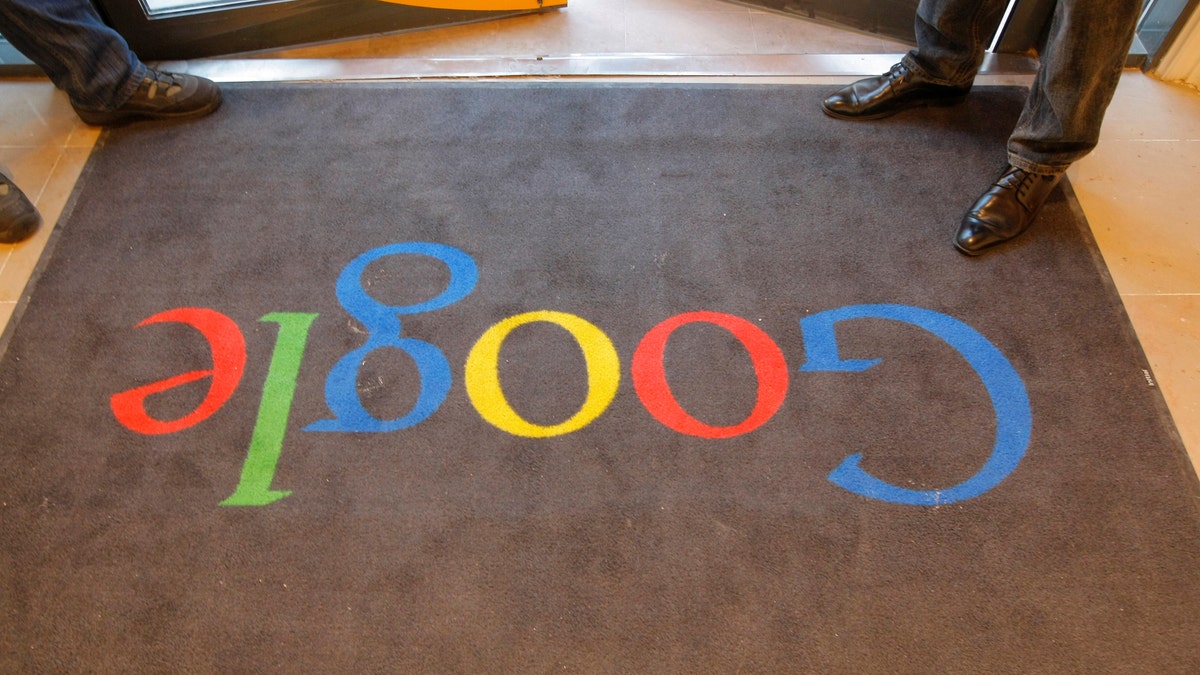
File photo (REUTERS/Jacques Brinon/Pool/File Photo)
A recently surfaced Google video discusses a creepy concept for collecting vast quantities of user data that could span generations.
The video, which was obtained by The Verge, paints an unsettling picture of how data could theoretically be harnessed on an epic scale. The Verge reports that the video was produced in 2016 by X, a research and development subsidiary of Google’s parent company Alphabet.
X, formerly known as Google X, describes itself as a “moonshot factory” focused on developing technologies to make the world “a radically better place.”
ELON MUSK SAYS ARTIFICIAL INTELLIGENCE IS HUMANITY'S 'BIGGEST RISK'
The Verge reports that the 9-minute video, entitled “The Selfish Ledger,” was shared internally within Google. The video examines the possibility of a dystopian world where our use of devices such as smartphones creates a sort of digital DNA, which, like physical DNA, could exist within the context of future generations.
“When we use contemporary technology a trail of information is created in the form of data,” it says. “When analyzed it describes our actions, decisions, preferences, movement and relationships. This codified version of who we are becomes ever more complex, developing, changing and deforming based on our actions.”
This creates a constantly evolving representation of who we are, which the video describes as a “ledger” of our data.
X has not yet responded to a request for comment on this article from Fox News.
STEPHEN HAWKING: ARTIFICIAL INTELLIGENCE COULD END HUMAN RACE
“User data has the capability to survive beyond the limits of our biological selves in much the same way as genetic code is released and propagated in nature,” the video explains. “It becomes possible for emerging users to benefit from the preceding generation’s behaviors and discussions.”
The video’s title is an homage to “The Selfish Gene” Richard Dawkins’ highly influential 1976 book on evolutionary biology.
In a statement provided to The Verge, an X spokesperson acknowledged that the concepts discussed in the video are unsettling.
HOW HACKERS CAN USE ARTIFICIAL INTELLIGENCE AGAINST US
“We understand if this is disturbing -- it is designed to be. This is a thought-experiment by the Design team from years ago that uses a technique known as ‘speculative design’ to explore uncomfortable ideas and concepts in order to provoke discussion and debate. It’s not related to any current or future products.”
One concept described in the video would involve users selecting a life goal in an area such as health or environmental impact. The ledger would then guide users toward the goal as they interact with their phones.
The video has surfaced at a time when a number of high-profile figures are voicing their concern about the potential harmful effects of technologies such as artificial intelligence. In a recent column in The Atlantic, for example, former U.S. Secretary of State Henry Kissinger described how society is unprepared for the rise of AI. The world he warns, may find itself relaying on data and algorithms “ungoverned by ethical or philosophical norms.”
DOOMSDAY AI MACHINES COULD LEAD TO NUCLEAR WAR, THINK TANK PAPER WARNS
Others are also worried. Tesla and SpaceX CEO Elon Musk, for example, has described AI as humanity’s “biggest risk,” while the late Stephen Hawking gave a stark warning about rise of highly intelligent machines.
The video, which was made by Nick Foster, the head of design at X, aims to fuel discussion about the role of technology in society by challenging our existing perceptions of data. “User-centered design principles have dominated the world of computing for many decades, but what if we looked at things a little differently?” it asks. “What if the ledger could be given a volition or purpose rather than simply acting as an historical reference? What if we focused on creating a richer ledger by introducing more sources of information? What if we thought of ourselves not as the owners of this information, but as custodians, transient carriers or caretakers?”
The video, which does not make tackle the issue of privacy, says that comparisons of data spanning generations could potentially benefit society. “As cycles of collection and comparison extend, it may be possible to develop a species-level understanding of species-level issues such as depression, health and poverty.”
Follow James Rogers on Twitter @jamesjrogers
